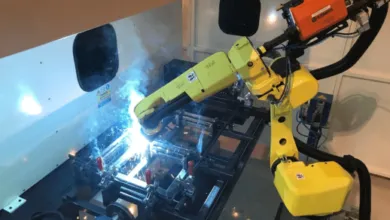“Enhancing Food Safety and Quality with Food Quality Analyzers”

The quality and safety of the food we consume are of paramount importance for our well-being. Food quality analyzers play a crucial role in ensuring that the food we eat meets the highest standards in terms of safety, freshness, and nutritional content. In this article, we will explore the significance of food quality analyzers, their various applications, and how they are revolutionizing the food industry.
1. What Are Food Quality Analyzers?
Food quality analyzers are advanced instruments used to assess and measure various attributes of food products. These attributes include nutritional content, composition, texture, color, flavor, and safety. These analyzers use a combination of techniques, such as spectroscopy, chromatography, and sensor technologies, to analyze food samples rapidly and accurately.
2. Ensuring Food Safety:
Foodborne illnesses are a significant concern worldwide. Food quality analyzers are instrumental in detecting contaminants, pathogens, and allergens in food products. They can identify harmful microorganisms, pesticides, heavy metals, and other potential threats to food safety. By doing so, these analyzers help prevent foodborne outbreaks and ensure consumer safety.
3. Nutritional Content Analysis:
Consumers are increasingly conscious of their dietary choices. Food quality analyzers aid in analyzing the nutritional content of food products, including macronutrients (carbohydrates, proteins, and fats), micronutrients (vitamins and minerals), and even the caloric content. This information is invaluable for both manufacturers, who can adjust their product formulations, and consumers, who can make informed dietary choices.
4. Texture and Sensory Analysis:
The texture and sensory characteristics of food products greatly influence consumer preferences. Food quality analyzers utilize texture analysis techniques to measure parameters like firmness, chewiness, and crispness. Sensory analysis tools can also help evaluate the flavor, aroma, and overall quality of food products, ensuring they meet consumer expectations.
5. Food Composition Analysis:
Food quality analyzers assist in determining the composition of various food products, particularly in terms of fat content, protein content, and moisture levels. This is crucial for manufacturers to comply with labeling regulations and maintain consistency in their product formulations.
6. Quality Control in Production:
Food quality analyzers are extensively used in production facilities to perform real-time quality control. These analyzers help maintain consistency in food products, ensuring that each batch meets established quality standards. This reduces waste and the risk of costly product recalls due to quality issues.
7. Freshness Assessment:
Ensuring the freshness of perishable food items is essential to prevent waste and maintain consumer trust. Food quality analyzers use techniques like gas chromatography to assess the freshness of products like meat and fish by detecting volatile compounds associated with spoilage.
8. Beverage and Wine Quality:
Food quality analyzers are not limited to solid foods; they are also crucial in the beverage industry. For instance, in winemaking, these analyzers assist in monitoring parameters such as alcohol content, acidity, and sugar levels, ensuring the production of high-quality wines.
9. Advancements in Food Quality Analysis:
The field of food quality analysis continues to evolve, with the development of more compact and user-friendly analyzers. Additionally, the integration of artificial intelligence and machine learning is making it possible to predict food quality and safety more accurately, leading to more efficient quality control processes.
10. Conclusion:
Food quality analyzers are essential tools that contribute to food safety, consistency, and consumer satisfaction. They help ensure that the food we consume is not only safe but also meets our quality and nutritional expectations. As technology continues to advance, food quality analyzers will play an increasingly critical role in shaping the future of the food industry, ultimately benefiting both manufacturers and consumers. With their ability to analyze various aspects of food products, food quality analyzers are indispensable for maintaining the high standards we expect in the foods we eat.
Check out C-Cell for more.





